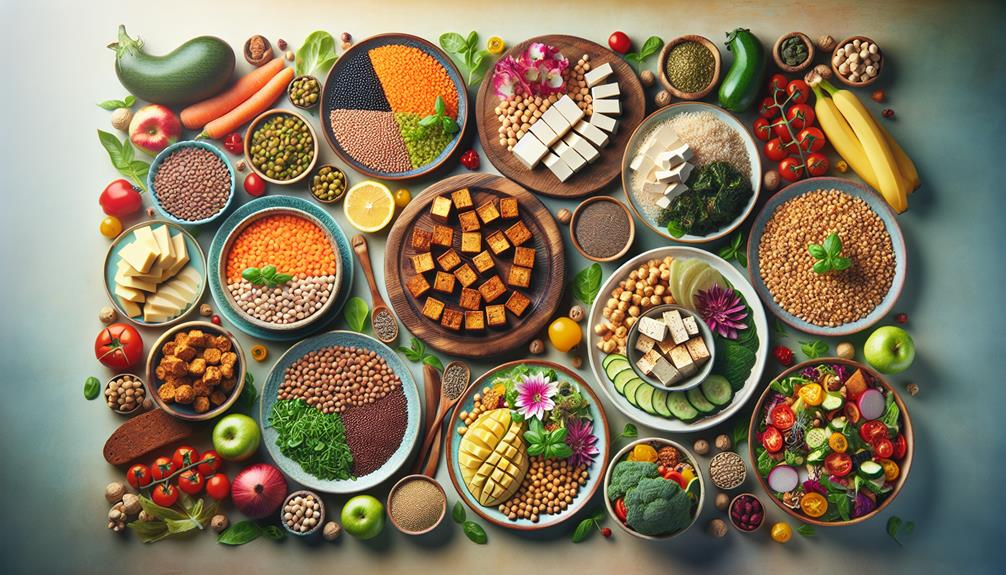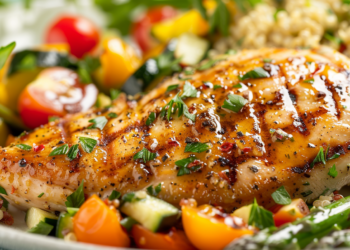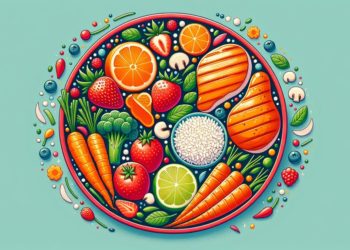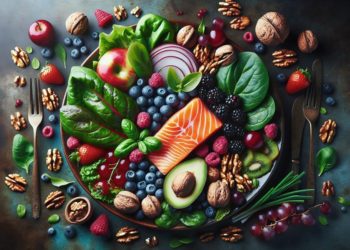Are you tired of feeling like you're running on empty, unable to push through those intense workout sessions? It's time to fuel your body with the power of plants and unlock your true strength. Contrary to popular belief, a vegan diet can provide all the necessary nutrients to support your fitness goals, from building lean muscle to improving endurance. But how exactly can you achieve optimal strength on a plant-based plan? In this discussion, we will explore the benefits of a vegan diet for strength training, delve into essential nutrients for vegan athletes, discover plant-based protein sources for muscle building, and uncover the secrets of meal planning and timing for optimal performance. Get ready to take your fitness journey to the next level and unlock your true potential.
Key Takeaways
- Vegan diets provide essential nutrients for fitness, including fiber, vitamins, and minerals.
- Plant-based diets can aid in muscle recovery and reduce inflammation.
- Plant-based diets improve cardiovascular health and can lead to lower body fat percentages and improved weight management.
- Including a variety of plant-based protein sources, such as pea protein, rice protein, hemp protein, and soy protein, supports muscle growth and maintenance.
The Benefits of a Vegan Diet for Strength Training
If you're looking to maximize your strength training gains, adopting a vegan diet can offer numerous benefits to support your fitness goals. Contrary to popular belief, a vegan diet can provide all the necessary nutrients for muscle gain and endurance. Many vegan athletes have achieved impressive levels of strength and endurance while following a plant-based diet.
One major advantage of a vegan diet for muscle gain is its high protein content. Contrary to the misconception that plant-based proteins are inferior to animal-based proteins, studies have shown that vegan sources like tofu, tempeh, lentils, and quinoa can provide all the essential amino acids needed for muscle growth and repair. Additionally, plant-based protein sources are often lower in saturated fat and cholesterol, making them a healthier option for overall cardiovascular health.
Vegan athletes have also reported improved endurance levels. Plant-based diets are rich in complex carbohydrates, which are the primary fuel source for endurance activities. Foods like whole grains, fruits, and vegetables provide a steady release of energy, ensuring sustained performance during prolonged workouts or competitions.
Essential Nutrients for Vegan Athletes
To support optimal performance and overall health, vegan athletes must ensure they obtain essential nutrients from a plant-based diet. While a vegan diet can provide all the necessary nutrients for athletic performance, it is important to pay attention to certain key nutrients. Here are some essential nutrients that vegan athletes should focus on:
- Protein: Contrary to popular belief, it is possible to meet protein requirements on a vegan diet. Incorporate protein-rich plant foods such as legumes, tofu, tempeh, seitan, and quinoa into your meals to ensure adequate protein intake.
- Iron: Plant-based sources of iron include dark leafy greens, lentils, beans, and fortified cereals. Pairing these foods with vitamin C-rich sources like citrus fruits or bell peppers can enhance iron absorption.
- Calcium: Include calcium-rich foods such as fortified plant-based milks, tofu, tempeh, and leafy greens like kale and collard greens in your diet to meet your calcium needs.
- Vitamin B12: Since vitamin B12 is primarily found in animal products, it is important for vegan athletes to supplement or consume fortified foods to ensure adequate intake.
- Omega-3 fatty acids: Incorporate plant-based sources of omega-3s such as flaxseeds, chia seeds, hemp seeds, and walnuts into your diet to support brain health and reduce inflammation.
In addition to focusing on nutrient intake, vegan athletes should also consider nutrient timing. Consuming a balanced meal or snack containing carbohydrates and protein before and after workouts can help support muscle recovery and growth.
Plant-Based Protein Sources for Muscle Building

Plant-based protein sources offer a variety of options for vegan athletes looking to build muscle. While many people associate protein with animal products, there are plenty of plant-based options that can provide the necessary nutrients for muscle growth and recovery. Vegan protein powders are a popular choice among athletes as they are convenient and provide a concentrated source of protein. These powders are typically made from ingredients such as peas, rice, hemp, or soy, and can be easily mixed into smoothies or shakes. They offer a complete amino acid profile, which is essential for muscle repair and growth.
In addition to protein powders, there are also numerous whole food sources of plant-based protein that can support muscle building. Foods such as tofu, tempeh, lentils, chickpeas, and quinoa are all rich in protein and can be incorporated into a balanced diet. These sources not only provide protein, but also offer other important nutrients such as fiber, vitamins, and minerals.
When it comes to plant-based muscle recovery, it is important to consume protein shortly after a workout to promote muscle repair and growth. Vegan protein powders can be especially beneficial in this regard, as they are easily digestible and can be quickly absorbed by the body. However, it is also important to consume a variety of plant-based protein sources throughout the day to ensure a steady supply of amino acids for optimal muscle recovery. By incorporating these plant-based protein sources into your diet, you can effectively support muscle building and achieve your fitness goals on a vegan plan.
Meal Planning and Timing for Optimal Performance
When optimizing performance on a vegan diet, careful meal planning and timing can play a crucial role in achieving your fitness goals. Here are some important factors to consider:
- Pre-workout snacks: Fueling your body with the right nutrients before a workout is essential for optimal performance. Choose a snack that provides carbohydrates for energy and a small amount of protein to support muscle function. Examples include a banana with almond butter, a handful of nuts and dried fruits, or a whole grain toast with avocado.
- Post-workout recovery: After a strenuous workout, your body needs to replenish its glycogen stores and repair muscle tissue. Aim to consume a combination of carbohydrates and protein within 30 minutes to an hour after your workout. This can be achieved through a plant-based protein shake, a bowl of quinoa with vegetables, or a tofu stir-fry with brown rice.
- Meal timing: It's important to space out your meals and snacks throughout the day to maintain a steady flow of nutrients. Aim to eat a balanced meal or snack every 3-4 hours to keep your energy levels stable and support muscle recovery.
- Hydration: Proper hydration is crucial for performance and recovery. Drink water regularly throughout the day, and consider incorporating electrolyte-rich beverages such as coconut water or a sports drink during intense workouts.
- Individual needs: Keep in mind that everyone's nutritional needs and preferences are different. Experiment with different meal plans and timing strategies to find what works best for you and supports your fitness goals.
Vegan Supplements to Enhance Athletic Performance

Optimizing your athletic performance on a vegan diet can be further enhanced by incorporating vegan supplements that support your fitness goals. Whether you are looking to increase your energy levels before a workout or aid in recovery after intense training sessions, there are vegan options available to meet your needs.
When it comes to pre-workout supplements, several vegan options can provide the necessary boost to improve your performance. One popular choice is beetroot powder, which is rich in nitrates that can enhance endurance and improve blood flow. Other vegan pre-workout supplements often include ingredients such as caffeine, creatine, and B vitamins to increase energy levels and focus.
After your workout, it is crucial to replenish your body with the necessary nutrients to aid in recovery. Vegan post-workout supplements can help with muscle repair and glycogen replenishment. Plant-based protein powders, such as pea, rice, or hemp protein, are excellent options to support muscle recovery and growth. Additionally, vegan BCAA (branched-chain amino acids) supplements can assist in reducing muscle soreness and promoting protein synthesis.
Frequently Asked Questions
Can a Vegan Diet Provide Enough Protein for Strength Training?
A vegan diet can provide enough protein for strength training. Plant-based sources such as tofu, lentils, and quinoa are rich in protein. In fact, a well-planned plant-based diet has numerous benefits for strength training, including improved recovery and reduced inflammation.
Are There Any Specific Nutrients That Vegans May Be Lacking in Their Diet for Optimal Strength Training?
You may be lacking specific nutrients in your vegan diet for optimal strength training. It is important to optimize your nutrient intake on a plant-based plan to ensure you have all the necessary building blocks for muscle growth and recovery.
How Can Vegans Ensure They Are Getting Enough Calories to Support Muscle Building?
To ensure you're getting enough calories for muscle building on a vegan diet, focus on vegan meal planning and incorporate protein-rich sources like tofu, tempeh, legumes, and quinoa into your meals.
Is It Necessary to Take Supplements on a Vegan Diet to Enhance Athletic Performance?
To enhance athletic performance on a vegan diet, taking supplements may be necessary. Vegan athletes can benefit from supplements like creatine and vitamin B12. Additionally, incorporating protein-rich plant-based foods can support muscle building.
Can a Vegan Diet Provide Enough Energy for High-Intensity Workouts and Endurance Training?
A vegan diet can provide enough energy for high-intensity workouts and endurance training. It supports weight loss and muscle recovery due to its nutrient-dense nature. Incorporating plant-based proteins, carbohydrates, and fats can meet your fitness needs.
Conclusion
In conclusion, adopting a vegan diet can provide numerous benefits for strength training and athletic performance. By ensuring proper intake of essential nutrients and incorporating plant-based protein sources into meals, individuals can build muscle and achieve optimal performance. Additionally, strategic meal planning and timing can further enhance results. While some may argue that a vegan diet lacks certain nutrients, scientific evidence supports the effectiveness of a well-planned plant-based plan for strength and fitness goals.













